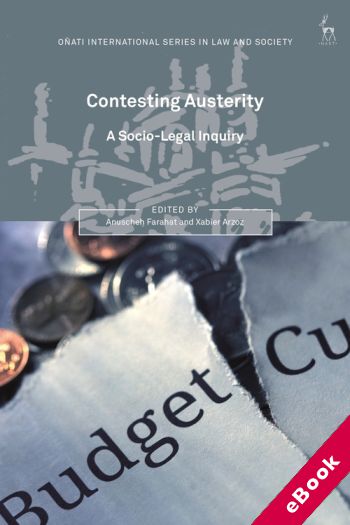
The device(s) you use to access the eBook content must be authorized with an Adobe ID before you download the product otherwise it will fail to register correctly.
For further information see https://www.wildy.com/ebook-formats
Once the order is confirmed an automated e-mail will be sent to you to allow you to download the eBook.
All eBooks are supplied firm sale and cannot be returned. If you believe there is a fault with your eBook then contact us on ebooks@wildy.com and we will help in resolving the issue. This does not affect your statutory rights.
This book addresses the different forms of austerity, contestation and resistance, in order to understand how they relate to one another and the impact they have on the democratic quality of public debates, the trust in public institutions and the legitimacy of law.
Contestation of austerity includes not only traditional activism strategies such as human rights litigation and direct democracy instruments, but also new forms of collective action and collaborative resistance. Most importantly, many of the new anti-austerity initiatives also aim to renovate existing modes of democratic decision-making on the European, national, regional and local levels. The book focuses on different types of contesting austerity measures and the interaction between institutional and civil society actors. It will enhance understanding of how the various actors frame not only their goal but also the underlying social conflict to contest austerity and through which means they try to achieve political and legal changes.
With 16 chapters written by contributors from Spain, Germany, Greece, Portugal and the UK, the book approaches 3 crucial areas of austerity policies: cuts in payment and pensions, labour law reform, and old and new poverty. In each field, the contributors analyse the processes of decision-making and contestation from 3 perspectives: institutions, democratic theory and societal responses.